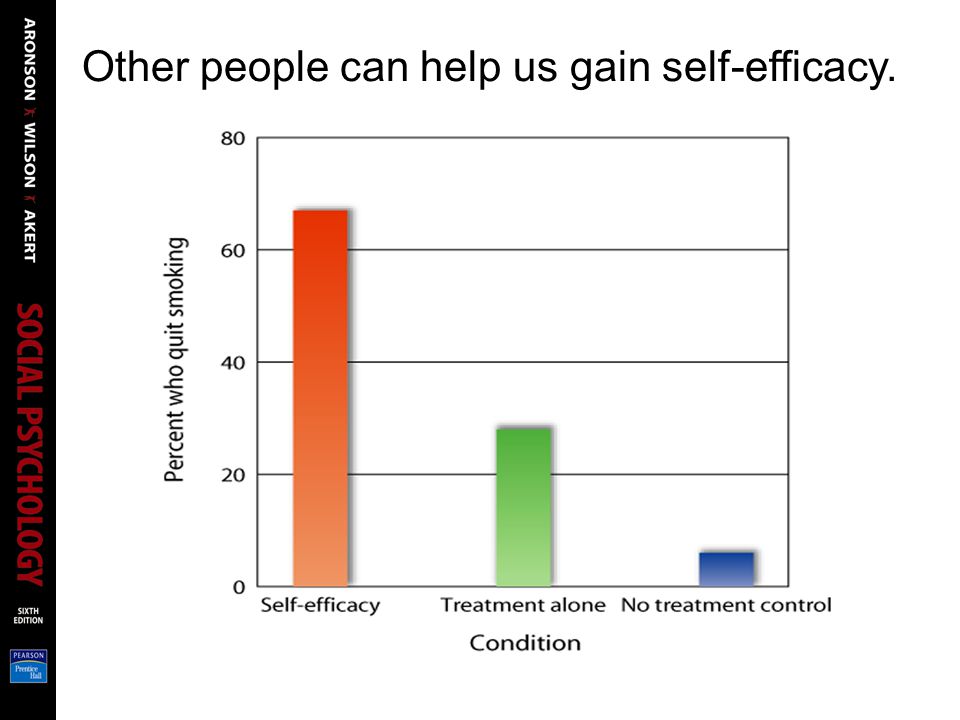This is a very pertinent introduction to the general progression of the history of psychology (psychoanalysis -> behaviorism -> cognitive psychology), as well as a very interesting introduction to how the belief of self-efficacy works:
1. Psychoanalysis (Freudian, Jungian, etc) (1900's~1930's):
"Explains" the motivation behind the behavior, but can't actually predict anything due to all the explanations being made after the fact.
2. Behaviorism (1920's~1960's):
Study of behaviors and behaviors alone. Can predict behaviors, but doesn't explain what's going on inside of the mind.
3. Cognitive psychology (1960's~now):
Takes the best of both worlds, explains predictable behaviors via cognitive explanations. Takes empirical and testable approach. A certain kind of cognition is what causes certain behaviors. Real causality.
Self-efficacy: A simple theory that your belief in something is what will create the result. A kind of a self-fulfilling prophecy. Backed up by statistical data and evidence.
Example: Telling people a lie that they can quit smoking, is way more effective than telling the truth that it's very difficult to quit smoking (say, only the top 5% can actually quit). This actually becomes a self-fulfilling prophecy, where if they were told that only 5% can quit, then only around 5% actually quit. But if they were told the lie that they can quit, then the number becomes 60%.
So the lie becomes the truth.
![]()
1. Psychoanalysis (Freudian, Jungian, etc) (1900's~1930's):
"Explains" the motivation behind the behavior, but can't actually predict anything due to all the explanations being made after the fact.
2. Behaviorism (1920's~1960's):
Study of behaviors and behaviors alone. Can predict behaviors, but doesn't explain what's going on inside of the mind.
3. Cognitive psychology (1960's~now):
Takes the best of both worlds, explains predictable behaviors via cognitive explanations. Takes empirical and testable approach. A certain kind of cognition is what causes certain behaviors. Real causality.
Self-efficacy: A simple theory that your belief in something is what will create the result. A kind of a self-fulfilling prophecy. Backed up by statistical data and evidence.
Example: Telling people a lie that they can quit smoking, is way more effective than telling the truth that it's very difficult to quit smoking (say, only the top 5% can actually quit). This actually becomes a self-fulfilling prophecy, where if they were told that only 5% can quit, then only around 5% actually quit. But if they were told the lie that they can quit, then the number becomes 60%.
So the lie becomes the truth.
